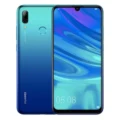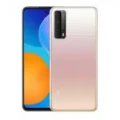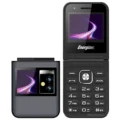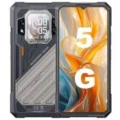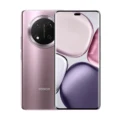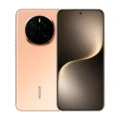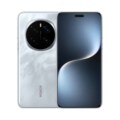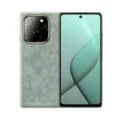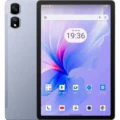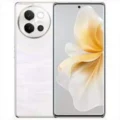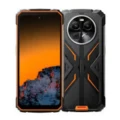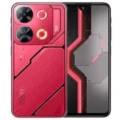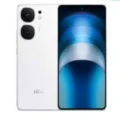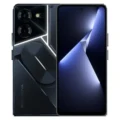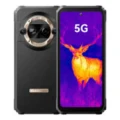Huawei Mate 40E 4G




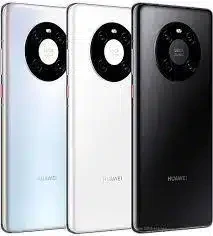
- : 8GB RAM Kirin 990E
- : 6.5" 1080x2376 pixels
- : 4200mAh 40W 40W
- : 64MP 2160p
Huawei Mate 40E 4G: Power, Style, and Value in Your Hand
Capture life’s magic: Huawei Mate 40E 4G Don’t let precious moments fade away. Freeze them in brilliant detail with the Mate 40’s impressive triple-camera system. From breathtaking landscapes to close-up portraits, capture stunning photos and videos that you’ll cherish forever.
See brighter, see bolder: Dive into a world of vibrant colors and sharp details on the expansive 6.5-inch display. Movies, games, and photos come alive with dazzling clarity, offering an immersive visual experience for entertainment and everyday use.
Power through your day: Stay connected and on top of everything with the long-lasting battery. Get all-day performance without worrying about running out of juice. And when you need a quick boost, SuperCharge technology gets you back to 100% in no time.
Speed for everything you do: Experience smooth performance and effortless multitasking with the powerful Kirin 9000E processor and ample RAM. Switch between apps, play games, and handle demanding tasks without lag or slowdowns.
Look sharp, feel confident: Turn heads with the Mate 40’s sleek and stylish design. Available in various eye-catching colors, it’s lightweight and comfortable to hold, making it your perfect everyday companion.
Connect and share with ease: Never miss a beat with clear video calls, smooth messaging, and a seamless social media experience. Share updates, connect with loved ones, and stay informed effortlessly.
More than just a phone: The Mate 40 goes beyond basic calling and texting. Explore a world of entertainment options, keep up with your favorite apps, and access everything you need at your fingertips.
Smart choice, great value: Enjoy top-tier features without breaking the bank. The Mate 40 offers exceptional value for your money, making it the perfect choice for those seeking a powerful, stylish, and affordable smartphone.
Unlock your potential and elevate your everyday life with the Huawei Mate 40 (4G).
Specs
Network
| 2G Network GSM 850 / 900 / 1800 / 1900 - SIM 1 & SIM 2 (dual-SIM) CDMA 800 / 1900 |
GSM 850 / 900 / 1800 / 1900 - SIM 1 & SIM 2 CDMA 800 |
| 3G Network |
HSDPA 800 / 850 / 900 / 1700(AWS) / 1900 / 2100 CDMA2000 1xEV-DO |
| 4G Network | 1, 2, 3, 4, 5, 6, 7, 8, 9, 12, 17, 18, 19, 20, 26, 34, 38, 39, 40, 41 |
| Speed | HSPA, LTE-A |
LAUNCH
| Announced | June, 2026 |
| Status | Available. Released 2021, June 29 |
BODY
| Dimensions | 158.6 x 72.5 x 8.8 mm (6.24 x 2.85 x 0.35 in) |
| Weight | 188 g (6.63 oz) |
| Build | Glass front, glass back, aluminum frame |
| SIMs SIM (Subscriber Identity Module) is a small card that contains mobile network subscriber's account information. This allows the phone using the card to attach to a mobile network. The SIM card is most commonly associated with GSM and UMTS mobile networks. Moving a SIM card from one phone to another allows a subscriber to switch mobile phones without having to contact their mobile network carrier. SIM cards can also be used by a phone to store limited amounts of data, such as phone numbers and text messages. | Hybrid Dual SIM (Nano-SIM, dual stand-by) IP53, dust and splash resistant |
Display
| Display Type Display Technology => A number of display technologies and types used in mobile phones => TFT (Thin Film Transistor), IPS (In-Place Switching), OLED (Organic Light Emitting Diode), AMOLED (Active-Matrix Organic Light-Emitting Diode), Super AMOLED (an even advanced version of AMOLED), Resistive Touchscreen (Resistive touchscreens contain two layer of conductive material with a very small gap between them which acts as a resistance), Capacitive Touchsceen (Capacitive touchscreen technology consists of a layer of glass coated with a transparent conductor) | OLED, HDR10, 90Hz |
| Size | 6.5 inches, 102.7 cm2 (~89.3% screen-to-body ratio) |
| Resolution | 1080 x 2376 pixels (~402 ppi density) |
PLATFORM
| Operating System OS => Every computer system run on a base software called Operating System (OS). Operating System controls all basic operations of the computer (such as smartphone, PDAs, tablet computers and other handheld devices). The Operating System allows the user to install and run third party applications (apps), apps are used to add new functionality to the device. | HarmonyOS 2.0 |
| Chipset Chipset is a group of integrated circuits designed to perform one or a more dedicated functions, often with real time computing constraints, Popular smartphones are equipped with more advanced embedded chipsets that can do many different tasks depending on their programming. | Kirin 990E (7 nm+) |
| CPU CPU (Central Processing Unit) mostly known as processors, CPU processes instructions in order to carry out certain functions that make your device operate properly. Processors are often described as the brain of computers, smartphones and tablets, Smartphones and tablets rely on processors to carry out their every task, Processors are an incredibly important factor in selecting any type of computing device, including your smartphone. | Octa-core (2x2.86 GHz Cortex-A76 & 2x2.36 GHz Cortex-A76 & 4x1.95 GHz Cortex-A55) |
| GPU GPU (Graphics Processing Unit) is a single-chip processor designed to rapidly manipulate and alter memory to accelerate the creation of images in a frame buffer intended for output to a display, This includes things such as lighting effects, object transformations, and 3D motion. | Mali-G76 MP14 |
MEMORY
| Card Slot Memory Card Slot is a special slot for inserting a memory card. Memory cards allow you to expand the phone's built-in memory, A memory card (sometimes called a flash memory card or a storage card) is a small storage medium used to store data such as text, pictures, audio, and video, for use on small, portable or remote computing devices such as mobile phones, mp3 players, digital cameras. | NM (Nano Memory), up to 256GB (uses shared SIM slot) |
| Internal | 128GB 8GB RAM, 256GB 8GB RAM UFS 3.1 |
MAIN CAMERA
| Cameras Specs Today’s smartphones come equipped with a very comprehensive set of camera related specifications. Our smartphone, for many of us, has become our primary camera due to it being the one we always have with us. |
64 MP, f/1.9, 27mm (wide), PDAF, Laser AF 8 MP, f/2.4, 85mm (telephoto), PDAF, OIS, 3x optical zoom 16 MP, f/2.2, 17mm (ultrawide) |
| Video | 4K, 1080p, gyro-EIS |
| Camera Features | Leica optics, LED flash, panorama, HDR |
SELFIE CAMERA
| Cameras Specs Today’s smartphones come equipped with a very comprehensive set of camera related specifications. Our smartphone, for many of us, has become our primary camera due to it being the one we always have with us. |
13 MP, f/2.4, 18mm (ultrawide) |
| Features |
HDR, panorama |
| Video | 4K, 720p@240fps |
SOUND
| Loudspeaker | Yes |
| 3.5mm jack |
Yes 32-bit/384kHz audio |
COMMS
| WLAN |
Wi-Fi 802.11 a/b/g/n/ac/6, dual-band, Wi-Fi Direct |
| Positioning |
GPS (L1+L5), GLONASS (L1), BDS (B1I+B1c+B2a+B2b), GALILEO (E1+E5a+E5b), QZSS (L1+L5), NavIC |
| Bluetooth Bluetooth is a wireless communications technology for exchanging data between mobile phones, headsets, computers and other network devices over short distances without wires, Bluetooth technology was primarily designed to support simple wireless networking of personal consumer devices. | 5.2, A2DP, LE |
| Infrared Infrared connectivity is an old wireless technology used to connect two electronic devices. It uses a beam of infrared light to transmit information and so requires direct line of sight and operates only at close range. | |
| USB | USB Type-C 3.1, OTG |
| NFC NFC (Near field communication) is a set of standards for smartphones and similar devices to establish peer-to-peer radio communications with each other by touching them together or bringing them into proximity, usually no more than a few inches. | |
| Radio |
Features
| Sensors Sensors are electronic components that detects and responds to some type of input from the physical environment. The specific input could be light, heat, motion, moisture, pressure and location, The output is generally a signal that is converted to use in computing systems, a location sensor, such as a GPS receiver is able to detect current location of your electronic device. | Fingerprint (under display, optical), accelerometer, gyro, proximity, compass, color spectrum |
BATTERY
| Battery Type Battery Type => Cell phones run on various kinds of batteries depending on the manufacturer, phone size or shape and features. There are basically four types of cell phone batteries => Lithium Polymer, Lithium Ion, Nickel Metal Hydride and Nickel Cadmium. | Li-Ion (Lithium Ion) |
| Charging The functionality responsible for recharging batteries in portable devices, such as mobile phones, significantly influences both battery lifespan and the practicality of daily product usage.The charging process, encompassing factors like voltage, current, and completion actions, is contingent upon the battery's size and type.Contemporary battery chargers dynamically adjust charging parameters based on the battery's current charging state. Charging an empty battery poses no safety risk, allowing for a quicker charging process. Consequently, many charging speed benchmarks, including ours, specify the battery level achieved after a 30-minute session on an empty battery.Standard chargers with a power output of 5V/1A, equivalent to 5W, serve as a baseline, with anything surpassing this speed classified as quick or fast charging. | 40W wired 40W wireless 5W reverse wired |
MISC
| Colors |
Silver, White, Black |
| Model | OCE-AL50 |
| Price | About 550 EUR |
TESTS
Reviews
Disclaimer Note
We strive to maintain accurate and up-to-date content on our website for general information purposes only. Please refrain from using the material for business, legal, or any other decisions.


